How to Prepare Your Home for Summer in the Pacific Northwest
How to Prepare Your Home for Summer in the Pacific Northwest
As the summer solstice rolls in on June 20th, the Pacific Northwest officially enters its sunniest, most adventure-filled season of the year. With more than 16 hours of daylight on the longest day, the possibilities stretch from early morning hikes to late evening dinners on the deck — even if our skies are still occasionally a little gray.
But summer in the PNW is more than sunshine and patio season. It brings a unique mix of opportunity and responsibility. With warmer weather, wildfire risks, and unpredictable temperature spikes becoming more common, now’s the perfect time to prep your home so you can make the most of every golden hour.
Whether you're hosting backyard BBQs, getting ahead of fire season, or just craving that light, breezy home feeling, this guide covers everything you need — indoors and out.
Make the Most of Natural Light
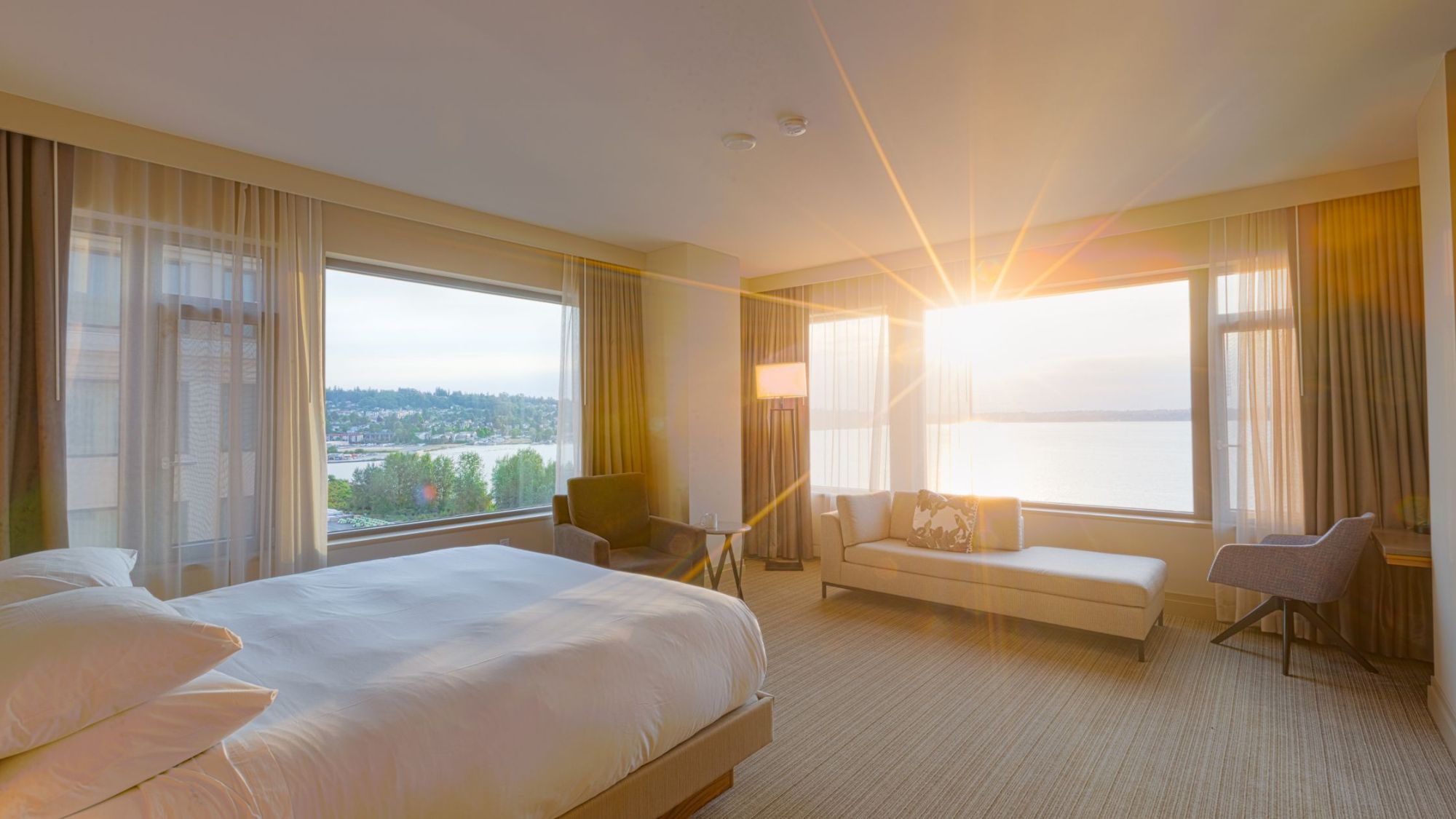
After a long, rainy winter and a moody spring, your home deserves to soak up every drop of the sunshine we’ve all been craving. In the Pacific Northwest, where gray skies can linger even into June, maximizing natural light isn't just about aesthetics — it can also boost your mood, support your circadian rhythm, and help cut down on electricity costs.
Here’s how to turn your space into a light-filled sanctuary:
-
Swap out heavy drapes and dark textiles for sheer, gauzy, or linen curtains in white or pastel shades. These let in light while still offering privacy — perfect for PNW homes where neighbors can be a little close.
-
Clean your windows thoroughly — inside and out. Rain, pollen, and winter debris can cloud glass, blocking natural brightness. A streak-free shine can instantly make your home feel bigger and more inviting.
-
Remove any obstructions from your window sills, like heavy plants or decor that blocks incoming light. If you love your greenery, reposition your plants to shelves or stands nearby where they can still enjoy the sun.
-
Use mirrors or reflective surfaces (like glossy tiles or light-toned furniture) to amplify natural light. A well-placed mirror across from a window can double the brightness in a room, especially helpful in north-facing or shaded areas.
-
Consider switching out lightbulbs to daylight-balanced LED bulbs in darker corners. These mimic natural light more closely than warm or cool-toned bulbs and can create a more cohesive flow throughout your home during cloudy mornings or early sunsets.
Pro Tip: Now’s the perfect time to inspect your window screens. After months of wind, rain, and debris, even a tiny tear can invite bugs inside. Replacing damaged screens lets you open up the house for fresh air — without letting in the mosquitoes, wasps, or the occasional curious raccoon.
Keep Your Home Cool (Without Blasting the AC)
Heat waves are no longer rare in the Pacific Northwest — and when they hit, they can hit hard. Our region’s homes aren’t always built with extreme heat in mind, which makes smart, energy-efficient cooling strategies more important than ever. Staying cool shouldn’t mean sky-high power bills or overtaxing the grid.
Here’s how to prep your home to beat the heat — comfortably and sustainably:
-
Give your ceiling fans a deep clean and make sure they’re set to spin counterclockwise during the summer. This setting pushes air downward, creating a wind-chill effect that can make the room feel up to 4°F cooler.
-
Install blackout curtains or thermal shades in south- and west-facing rooms, where sunlight tends to hit hardest in the afternoon. These can dramatically reduce indoor temperatures, especially during long daylight hours near the solstice.
-
If you have air conditioning, book a maintenance check now — before demand spikes and appointments are hard to get. A quick tune-up can improve efficiency, lower energy use, and extend the lifespan of your unit.
-
Don’t have central AC? No problem. Portable evaporative coolers, window units, or dual-hose portable air conditioners can be surprisingly effective — especially if you only need to cool one or two rooms. Just make sure windows are properly sealed and insulated to keep that cool air in.
-
Use your appliances strategically. Avoid running the oven, dishwasher, or dryer during the heat of the day. These appliances generate heat and can force your cooling systems to work harder.
Bonus Green Tip: Install trellises or vertical planters along sun-exposed walls and windows. Fast-growing vines like clematis, honeysuckle, or even native grape varieties offer natural shade, filter sunlight, and add lush beauty to your exterior — while helping cool your indoor space passively.
Fire Safety and Wildfire Readiness
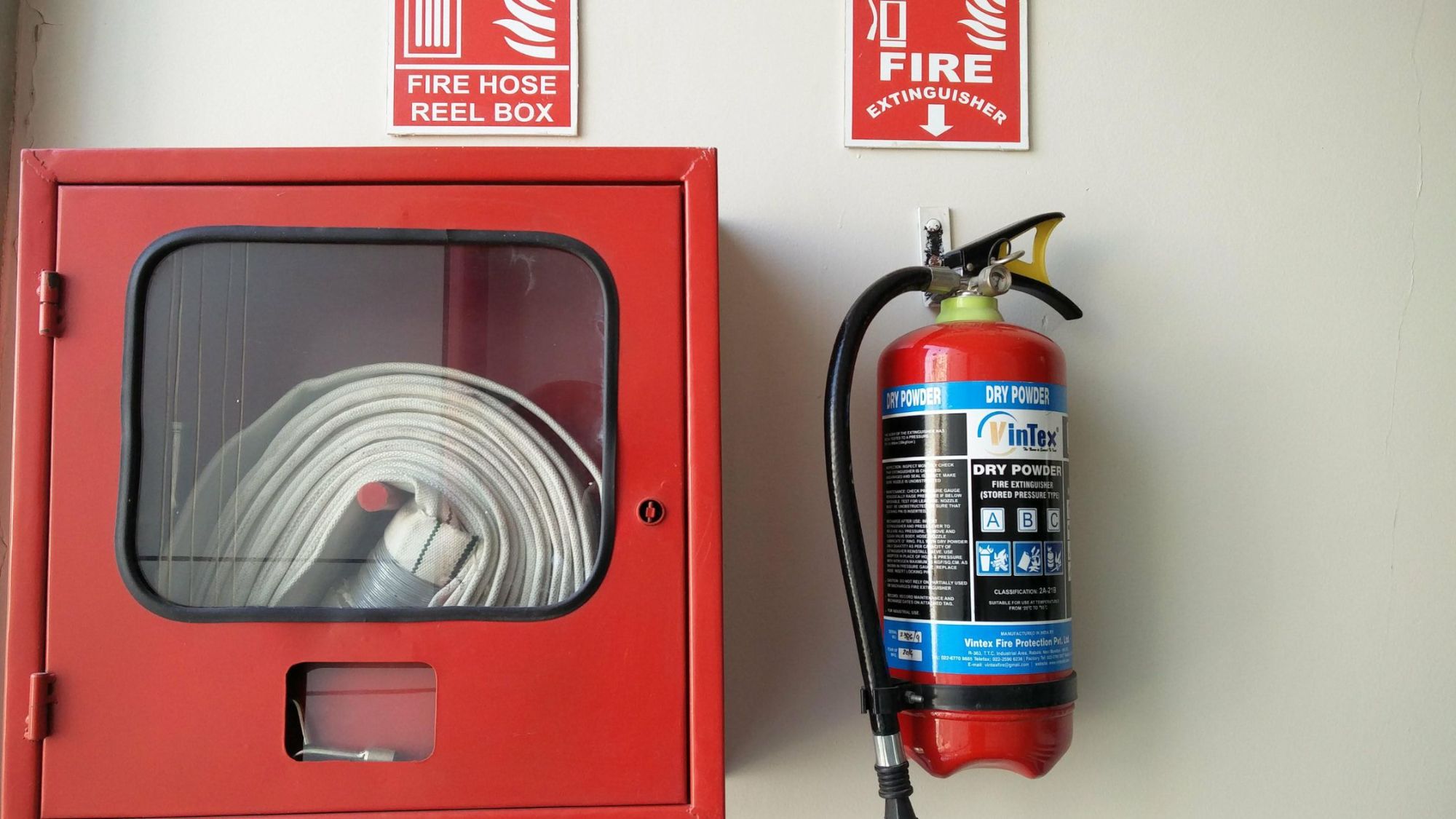
Summer in the Pacific Northwest isn’t all sunshine and breezy evenings — it also brings real wildfire risks, especially in areas near forests, fields, or undeveloped land. Even if you live in the suburbs, drifting smoke and temporary evacuations have become more common across Oregon and Washington.
Now is the time to get proactive, not reactive.
-
Create a defensible space around your home by clearing flammable materials within at least 30 feet of your foundation. That includes dry leaves, pine needles, dead plants, yard clippings, stacked firewood, and anything that could ignite from embers.
-
Clean your gutters and roofs thoroughly. It’s surprising how many wildfires are worsened by kindling-like debris hiding in out-of-sight places. Trim trees so branches are at least 10 feet from your roof and cut back limbs that hang low over your house or driveway.
-
Check that all garden hoses are connected and fully operational, with no leaks or blockages. Attach a spray nozzle that can be switched on quickly — this could make all the difference in an emergency if you need to dampen your home’s perimeter.
-
Stock a wildfire emergency kit (or two — one for the house, one for the car) that includes:
-
Bottled water and shelf-stable snacks
-
N95 masks to help filter smoke
-
Flashlights and extra batteries
-
A battery-powered or crank radio for updates
-
Phone chargers or backup power banks
-
Hard copies of important documents and ID
-
Pet supplies and medications
-
-
Power outages can happen during fire season. Whether it’s a planned public safety shutoff or wind knocking out lines, a small generator can keep essentials running — like your fridge, fans, and communication devices. If you have a well, this is doubly important to ensure you don’t lose access to water.
PNW Tip: Sign up for your county’s emergency alerts and keep an eye on air quality reports, especially if you're sensitive to smoke or have young children or elderly family members in the home.
Preparation now means peace of mind later — and could help protect your property, your safety, and your neighbors.
Get Your Outdoor Spaces Guest-Ready
Summer in the PNW is all about soaking in the long, golden evenings with friends, family, and neighbors. Whether you're throwing backyard BBQs, hosting sunset dinners, or just enjoying a quiet cup of coffee in the morning sun, your outdoor spaces deserve a little TLC before they become the seasonal hub of your home.
Here’s how to get your patio, deck, or yard looking its best:
-
Deep clean your patio or deck — a good pressure wash can remove winter grime, moss, and slippery buildup. If you have wood decking, consider resealing or restaining it to protect against sun and moisture damage.
-
Spruce up your outdoor furniture. Wipe down cushions, repaint rusted frames, and replace anything that didn’t survive the rainy season. A few cozy additions like waterproof throw pillows, outdoor rugs, or even a fire pit can instantly elevate your space.
-
Lighting makes all the difference. Add solar path lights along walkways, hang string lights across your patio or fence, or place lanterns and battery-powered candles on outdoor tables. Not only does it add ambiance — it extends your gathering time well past sunset.
-
Prep for dining al fresco. If you have a grill, give it a deep clean and check propane or charcoal supplies. Set up a dedicated prep station or cart to keep cooking essentials handy. Consider adding a shaded area like a canopy, pergola, or large umbrella to create a more comfortable dining zone — especially important during midday heat.
-
Plan your landscape with intention. Native plants like salal, Oregon grape, lavender, or sword fern are not only beautiful — they’re hardy, drought-resistant, and attract pollinators. A mix of evergreens and colorful blooms adds visual interest and seasonal charm.
-
Install or test your irrigation system. Smart timers and drip lines can help conserve water while keeping your garden and lawn lush. If watering by hand, schedule it for early morning or evening to reduce evaporation.
Bonus Tip: Keep an outdoor bin or basket stocked with citronella candles, sunscreen, bug spray, and a few light throws or blankets for when the breeze picks up. Your guests will thank you!
Summer Pest Prevention

With warmer weather comes a parade of unwanted visitors — from sugar-hungry ants in the kitchen to buzzing wasps at the backyard table. In the Pacific Northwest, our damp winters followed by warm summers create the perfect environment for pests to thrive. But with a little prep, you can keep them at bay and enjoy a pest-free home this season.
Common PNW Summer Pests:
-
Ants (especially odorous house ants and carpenter ants)
-
Wasps and yellow jackets
-
Spiders (including hobo and giant house spiders)
-
Mosquitoes
-
Rodents and raccoons (seeking shade and snacks)
-
Termites and carpenter bees (if untreated wood is exposed)
Here’s how to safeguard your home:
-
Seal up entry points. Inspect windows, door frames, vents, and foundation cracks for gaps. Use weather stripping, caulk, or screens to block easy access points. Pay special attention to where utilities enter your home — those small gaps are an open invitation for bugs and critters.
-
Eliminate standing water. Dump anything holding stagnant water: clogged gutters, buckets, plant saucers, old tires. Mosquitoes can breed in even tiny amounts of water, and they don’t need long to multiply.
-
Keep your home crumb-free. Wipe down counters, sweep floors regularly, and store food (especially sweets and pet food) in airtight containers. Take out the trash frequently and keep garbage bins tightly sealed.
-
Trim back vegetation. Overgrown shrubs and tree limbs close to the house provide ideal hiding spots and highways for pests. Maintain a clear perimeter around your home’s exterior.
-
Inspect attics, basements, crawlspaces, and sheds. These cool, dark spaces are prime real estate for spiders, wasps, and rodents. Look for signs of webs, nests, droppings, or chewed materials.
-
Use natural repellents. Plants like lavender, mint, rosemary, and basil can help deter insects — and they smell amazing! Place them near doorways or windows, or use essential oil diffusers indoors.
-
Call a pro if needed. If you spot carpenter ants, termite damage, or repeated wasp nests, don’t wait. A professional pest control service can address problems early before they get expensive or dangerous.
Seasonal Tip: Keep a small toolkit handy with wasp spray, a fly swatter, and sticky traps so you’re never caught off guard when pests appear.
Energy Check-Up
Summer in the PNW doesn’t always mean scorching temperatures — but it does mean a spike in appliance use, fans running longer, outdoor fridges getting stocked, and the BBQ getting fired up on repeat. Before you dive into summer routines, give your home’s energy systems a once-over to keep everything running smoothly (and avoid those mid-party meltdowns).
Here's your seasonal energy tune-up checklist:
-
Ceiling Fans:
Make sure they’re spinning counterclockwise to push cool air down and create a wind-chill effect. Dust the blades (they collect more than you think!) and tighten any wobbly mounts. -
AC Systems and Portable Units:
Even if you don’t use them often, get filters cleaned or replaced and have your central system serviced by a professional if it hasn’t been checked in the last year. Portable or window AC units should be dusted, filters rinsed, and vents vacuumed. -
Refrigerators (Indoor + Outdoor):
Clean refrigerator coils (often on the back or bottom of the unit) to help them run efficiently, especially if you’ve got a garage fridge working overtime for BBQ supplies and beverages. Check door seals for leaks — a little air loss adds up fast on your energy bill. -
BBQ Grill Check:
Whether it’s gas, charcoal, or pellet, now’s the time for a deep clean. Scrub grates, empty the grease tray, and inspect hoses for cracks or leaks. For propane grills, check that your tank is full and consider keeping a spare on hand for unexpected gatherings. -
Lighting Swap:
Switch out older outdoor bulbs for energy-efficient LEDs or solar-powered options. Motion-sensor lighting near garages or sheds can also help reduce energy waste while boosting security. -
Smart Power Strips & Timers:
Use smart plugs or timers for outdoor lighting, fountains, or garden features to cut down on phantom energy drain. Bonus: You can automate ambiance for parties or evenings on the deck. -
Insulation & Drafts (Yes, in Summer!):
Drafts let warm air in and cool air out — and it works both ways. Check for leaky seals around windows and doors. A quick re-caulk or weatherstrip fix can make a big difference in overall comfort.
Pro Tip: If your energy bill has jumped recently and you’re not sure why, consider using a usage monitor plug or asking your utility company for a home energy audit. Many providers in the PNW offer free or discounted audits during the summer months!
Seasonal Décor and Scent Reset
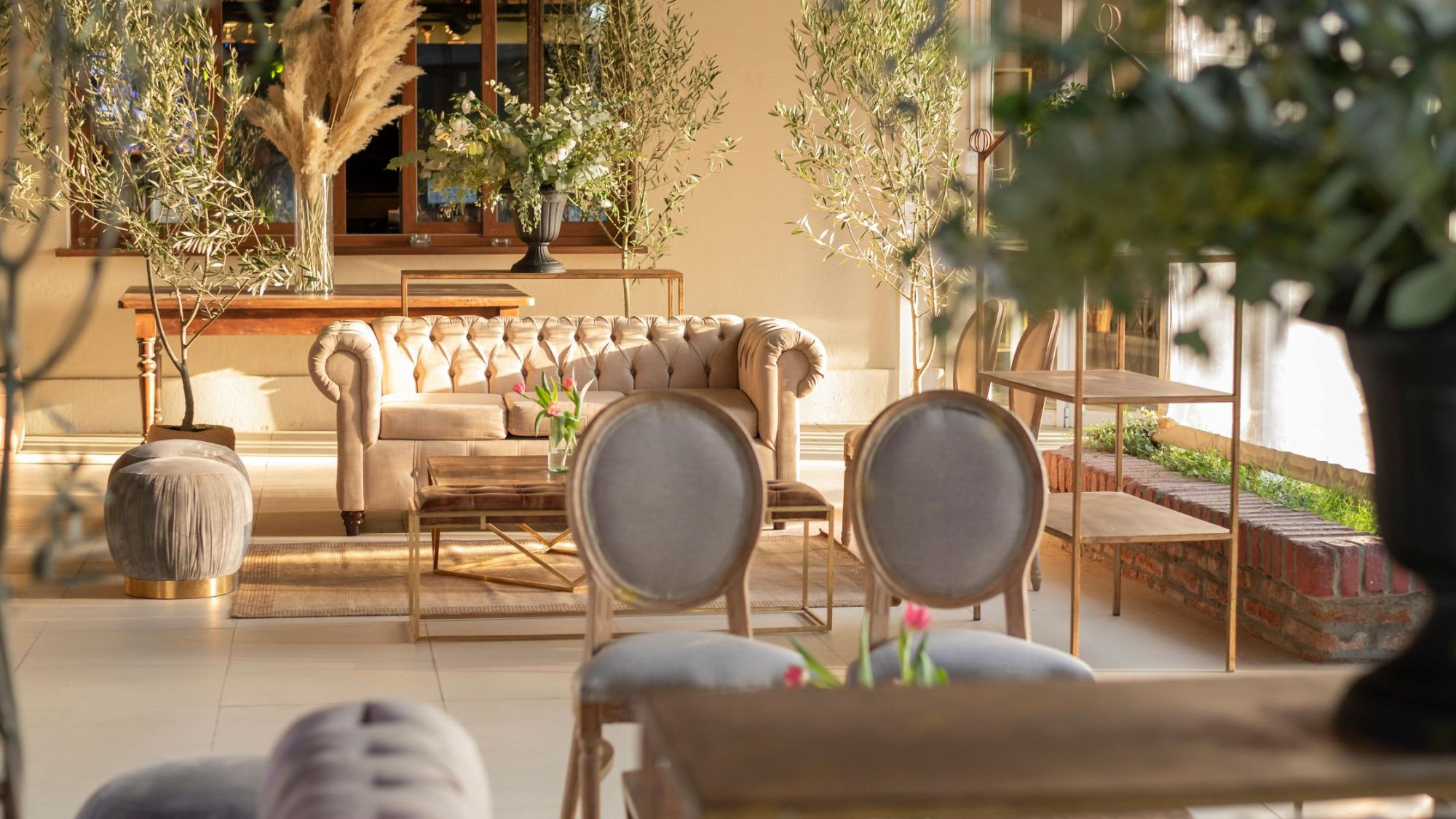
Summer is more than just a change in temperature — it’s a whole mood. After the gray skies and soggy socks of winter and spring, your home deserves a seasonal refresh that brings in the light, the scents, and the easygoing vibe of a Pacific Northwest summer.
Here’s how to give your home a sunny, sensory update:
-
Go Light & Bright:
Swap out heavy textiles like flannel throws and wool rugs for light linens, cottons, and woven textures. Think beachy, breezy fabrics in colors inspired by nature — soft blues, sage greens, sandy neutrals, and pops of citrus. -
Bring the Outdoors In:
Display fresh-cut flowers from your garden, a local farmers market, or a summer hike (hello, wildflowers!). PNW favorites like lavender, yarrow, and hydrangea make stunning arrangements.
Want something longer-lasting? Indoor plants like succulents, spider plants, and pothos are low maintenance and bring a burst of life into any room. -
Seasonal Scents that Feel Like Summer:
Citrus, mint, lavender, eucalyptus, and lemongrass are all great warm-weather scent options. You can use candles, diffusers, simmer pots, or essential oils — whichever fits your style. These not only freshen the air, they also help deter pests naturally (especially if you use real herbs like mint and rosemary near windows or doors). -
Entryway Glow-Up:
Switch out your doormat for something summer-themed and add a couple of bright planters to frame the front door. This sets the tone for the season before guests even walk in. -
Outdoor-Inspired Dining:
Use melamine dishware in bright or coastal tones, woven placemats, and linen napkins to make even a casual weeknight dinner feel like a summer celebration — inside or out.
Extra Touch: Play around with lighting — swap lampshades for lighter fabrics, add battery-powered string lights to bookcases or window sills, or use solar lanterns to create magical nooks both indoors and outside.
Why Seasonal Prep Matters in the Pacific Northwest
The PNW is a region of stunning beauty, but each season brings its own maintenance rhythm. Summer is a balancing act between enjoying the outdoors and preparing for its extremes — from unexpected droughts to party-ready patios to emergency readiness.
A little love now goes a long way in ensuring a safe, beautiful, and relaxing summer at home. Plus, thoughtful updates can increase your home's long-term value — especially if you're planning to sell soon or just want to keep it market-ready.
Sign up for my monthly newsletter to receive expert advice, important local updates, and insider knowledge on the best ways to thrive in this unique region. Whether you're buying, selling, or simply curious about life in the Pacific Northwest, I've got you covered.
👉 Join my newsletter today and never miss a beat! Just enter your email below and get exclusive access to all things Southwest Washington. Let’s stay connected!
Frequently Asked Questions
How to prepare a house for hot weather?
Seal windows and doors, use reflective window coverings, and service your HVAC system. Adding insulation and using ceiling fans also helps regulate indoor temperature. Prepping early can reduce cooling costs and keep your home comfortable all season.
How to weatherize your home for summer?
Weatherize by installing weatherstripping, sealing leaks, and shading windows with curtains or UV films. You can also upgrade insulation and add attic ventilation. These changes help reduce indoor heat gain and lower your energy bills.
What to keep a house at during summer?
The U.S. Department of Energy recommends keeping your thermostat at 78°F when you're home. If you're away, set it around 85°F to save energy. Smart thermostats can help you manage this automatically.
How to protect a house from heat in summer?
Use shade trees, awnings, or exterior shades to block sun from windows. Add insulation in the attic and reflective materials on the roof. Keeping blinds closed during peak hours also helps.
What is the hottest you should let your house get?
For energy savings and safety, the max indoor temperature should stay below 85°F. Higher temps may lead to discomfort and heat-related health issues. Keep air circulating and stay hydrated.
How to survive a heatwave with no AC?
Close windows and curtains during the day and open them at night to cool down. Use fans, stay hydrated, and avoid using heat-generating appliances. Cooling centers or libraries can also offer a temporary air-conditioned escape.
How to ventilate a house in summer?
Use exhaust fans in kitchens and bathrooms to remove warm air. Open windows at night when temperatures drop and use fans to circulate cooler air. Whole-house fans can also pull hot air out through the attic.
How to get free windows for your home?
Some utility companies and local governments offer weatherization assistance or energy efficiency grants. You can check with the Low-Income Home Energy Assistance Program (LIHEAP) or local nonprofits. Income qualifications usually apply.
How to insulate a home for summer?
Focus on attic insulation, wall insulation, and sealing ductwork. Foam or fiberglass batts are common choices. Proper insulation keeps cool air in and hot air out.
What should AC be set to in summer?
Set your AC to 78°F when you're home for a good balance of comfort and efficiency. Raise it to 85°F when you're away. Use programmable thermostats to automate adjustments.
Categories
Recent Posts
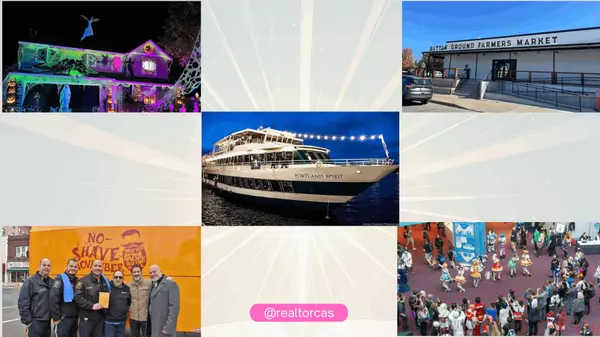
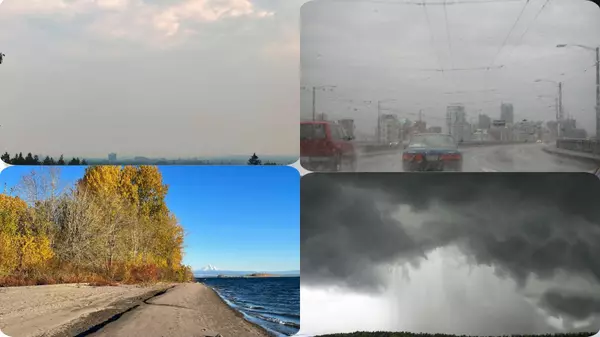


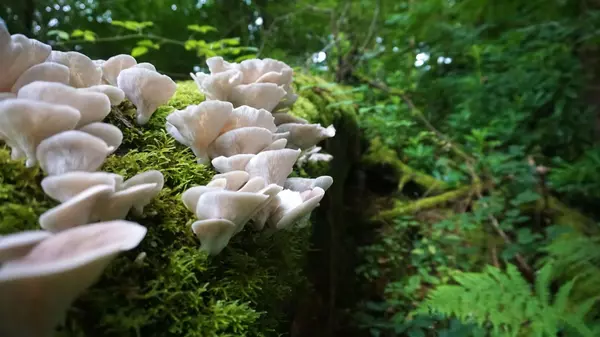





GET MORE INFORMATION

Cassandra Marks
Realtor, Licensed in OR & WA | License ID: 201225764
Realtor, Licensed in OR & WA License ID: 201225764
